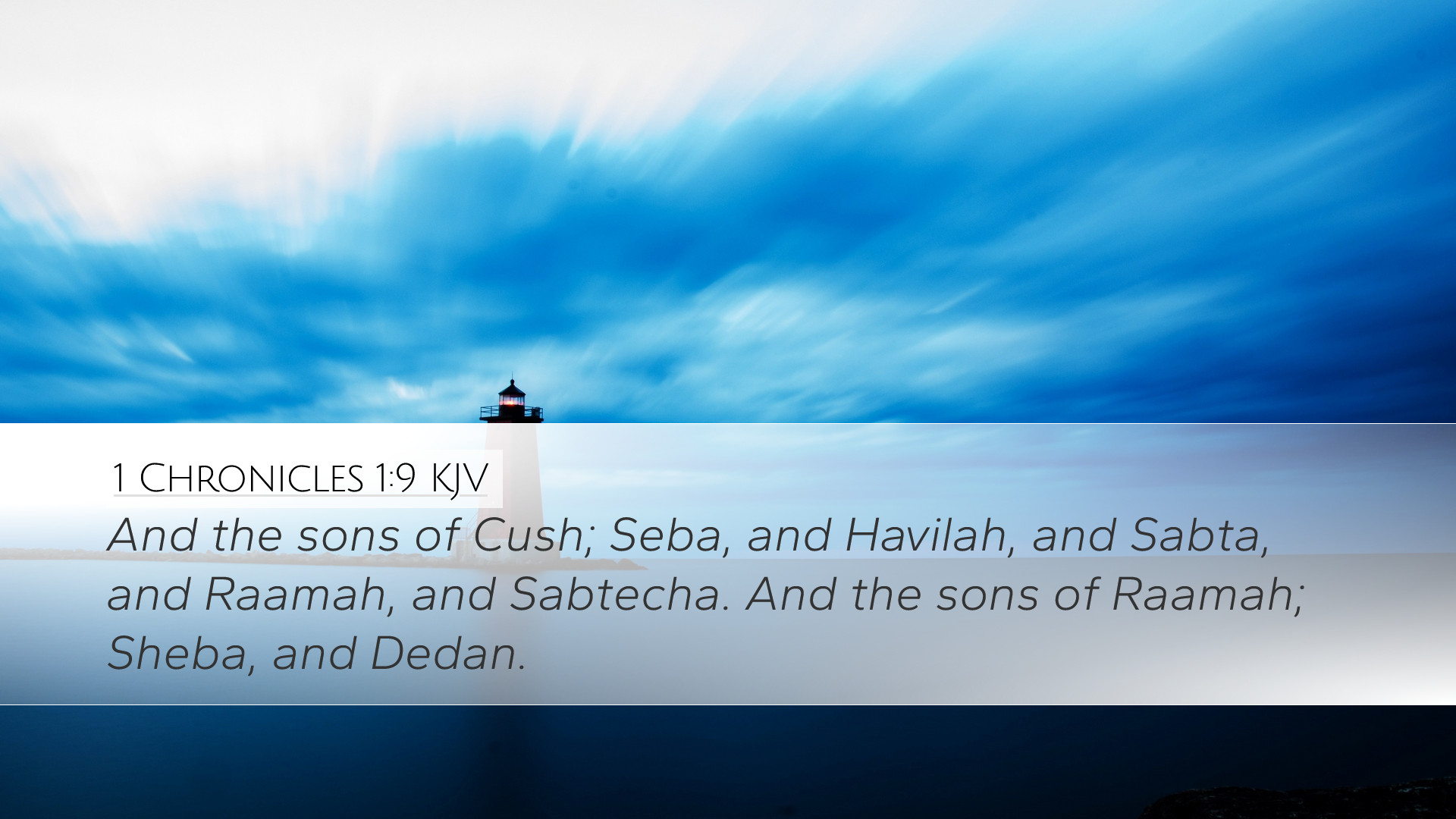Commentary on 1 Chronicles 1:9
In 1 Chronicles 1:9, we encounter the genealogy of Israel, specifically the tribe of Judah. The verse reads:
"The sons of Judah: Er, and Onan, and Shelah: which three were born unto him of the daughter of Shua the Canaanite." (1 Chronicles 1:9, KJV)
This verse, though seemingly straightforward, encapsulates significant theological and historical insights. Here we examine the reflections drawn from well-recognized public domain commentaries, particularly those of Matthew Henry, Albert Barnes, and Adam Clarke.
Contextual Significance
Matthew Henry emphasizes that the genealogies recorded in Chronicles serve to establish the lineage of God's covenant people. In this case, the mention of Judah's sons is vital as it roots the Davidic lineage, which leads to Christ, in a solid historical context. Thus, this genealogy not only highlights family connections but also God's overarching plan of salvation through covenant faithfulness.
The Sons of Judah: Er, Onan, and Shelah
Each of the names mentioned in this verse carries with it a depth of meaning and associated narratives.
-
Er:
The name Er suggests the idea of "awakening" or "watchful." According to Albert Barnes, Er's mention (along with his tragic fate, where he was slain by God for his wickedness as recorded in Genesis 38:7) serves as a somber reminder of divine justice. This reinforces the notion that God calls His people to holiness and will not permit sin to go unjudged.
-
Onan:
Onan, like his brother Er, faced a grim fate. The story of Onan (who disobeyed God's command regarding levirate marriage) emphasizes the seriousness of obedience and the repercussions of sin. According to Adam Clarke, Onan embodies the consequences of moral failure and the protection of the sanctity of family lineage.
-
Shelah:
Shelah, the last of the three sons mentioned, signifies "to send away." Henry notes that Shelah represents a hope fulfilled, as he establishes a line that continues the family narrative beyond the deaths of his brothers. This duality of judgment and hope illustrates God's redemptive purpose amidst human failures.
The Role of Women: The Daughter of Shua
The verse also references the daughters in these genealogies, notably calling attention to the daughter of Shua, a Canaanite. This inclusion is significant for several reasons:
-
Cultural Implications:
Barnes points out the cultural implications of Judah marrying a Canaanite. It reflects the frequent tensions and mingling between Israel and surrounding nations. From a theological standpoint, it emphasizes God's sovereignty in working through a flawed people and inclusion of Gentiles into His family plan.
-
Gender Significance:
Commentaries highlight that genealogies in biblical texts often omit women's names; thus, mentioning the daughter of Shua elevates her status within the narrative. It serves as a precursor to the inclusion of women in the lineage of Christ, showing that God's grace extends beyond societal norms.
Theological Reflections
Reflecting on the verse as a whole, the chronicler's purpose in detailing these genealogies extends beyond mere historical record; it serves as a theological reminder of God's promise to preserve His people and His fidelity to His covenant.
Henry reflects on the importance of genealogies for believers today, noting that just as Judah's lineage was part of God’s redemptive history, so too does every believer have a place in God's narrative. This should inspire humility before the Lord, recognizing that our legacy is tied to Him.
Conclusion
In 1 Chronicles 1:9, much can be gleaned: the gravity of sin, the importance of obedience, the significance of heritage, and the overarching themes of hope and redemptive grace. The careful study of this text provides profound insights for pastors, students, and scholars alike, encouraging deeper exploration of the God who works through history, human failure, and divine purpose.


